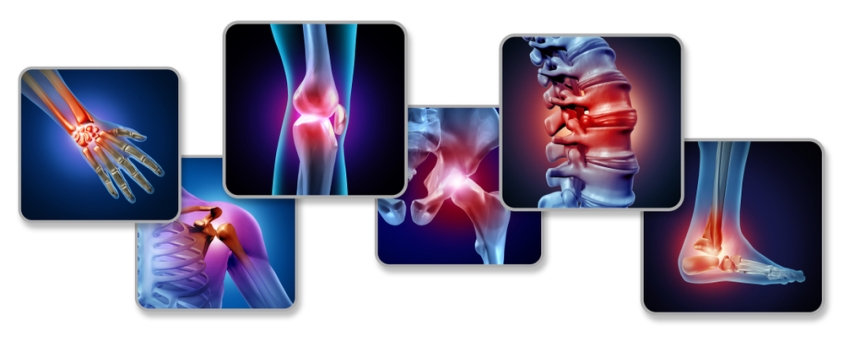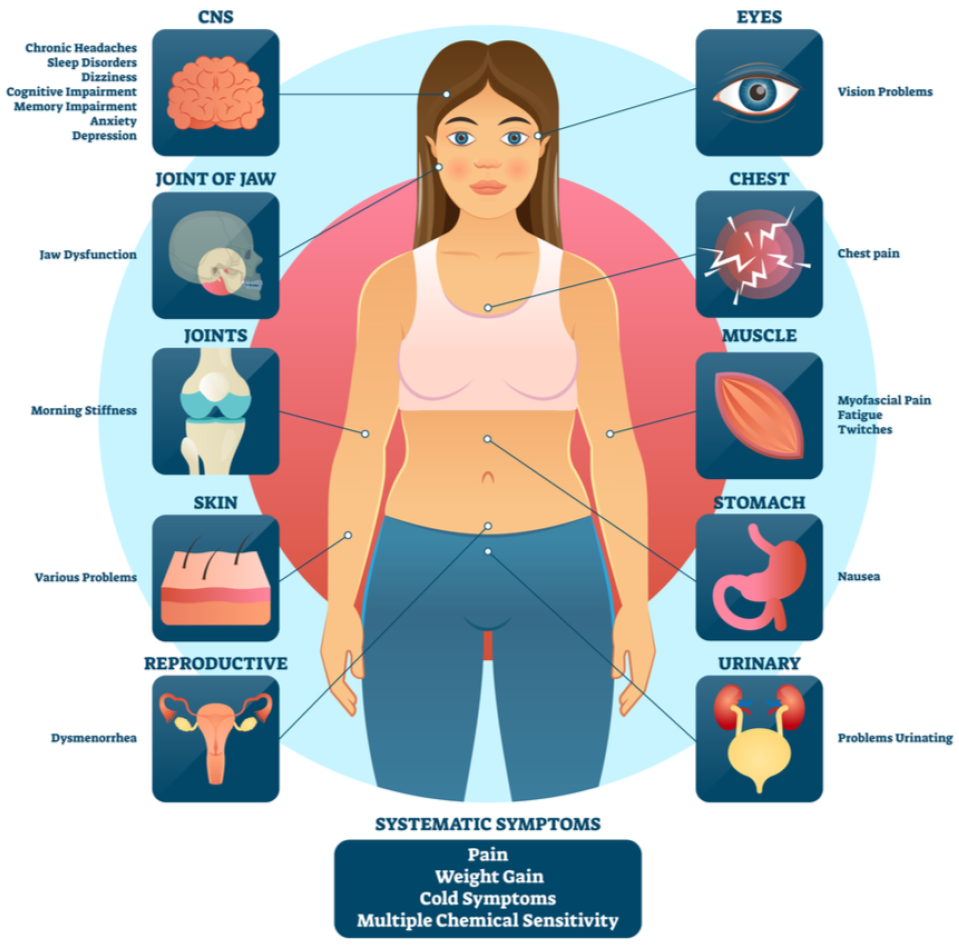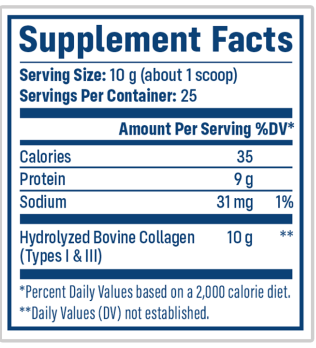
5 Foods That Worsen Fibromyalgia
And What To Eat To Reduce Joint, Muscle & Nerve Pain Flare-Ups

By Dr. Chad Walding
Doctor of Physical Therapy, ISSA Certified Nutrition Specialist, & NativePath Co-Founder
Fibromyalgia is a condition characterized by widespread musculoskeletal pain, along with fatigue, trouble sleeping, memory problems, and mood issues.
While the exact cause of fibromyalgia is unknown, researchers believe that the condition has to do with how the brain processes pain signals.
Symptoms Of Fibromyalgia

There is no cure for fibromyalgia, but there are various medications, therapies, and lifestyle changes that can improve symptoms.
One major yet often overlooked factor discussed in this article is diet.
The foods you eat affect the inflammation and pain response in the body - that said, there are some foods to avoid and some to add to your diet.
“Inflammation is a trigger for pain, so the goal of a fibromyalgia diet is to avoid inflammatory foods. By replacing these foods with anti-inflammatory options, it’s possible to prevent flare-ups.”
- Dr.Chad Walding, Doctor of Physical Therapy, ISSA Nutrition Specialist & NativePath Co-Founder
Here are some food types to avoid:
1.) Unhealthy Cooking Oils
Vegetable oil, safflower oil, soy oil, canola oil, peanut oil and corn oil can worsen fibromyalgia symptoms because they are inflammatory, especially when used to fry foods.
In fact, most vegetable oils are high in omega 6's and should be used in moderation. It is the overabundance of omega 6 in the diet that encourages pain and joint inflammation.
There are many different fats that are beneficial for fibromyalgia. Healthy oils such as extra virgin olive oil and virgin coconut oil both contain properties that are shown to diminish inflammation, pain and fatigue.
The two best oils to use instead are extra virgin olive oil, avocado oil and coconut oil. While extra virgin olive oil has a lot of great health benefits, it is not the best cooking oil because it deteriorates chemically when heated. Coconut oil and avocado oil, on the other hand, hold up well under heat and make for perfect cooking oil alternatives. So, extra virgin olive oil would be your best oil for salad and the like, and coconut oil would be the best for cooking. Of course, you really want to go organic for the best quality and health benefits.
Honorable mention goes to organic, grass-fed butter. Like olive oil and coconut oil, grass-fed butter is a healthy fat that’s excellent for cooking. As an added bonus, grass-fed butter supports metabolic health and weight loss. The key here is grass-fed. The cows providing the butter need to be on a strict grass-fed diet. Grains are extremely bad for cows. Grains will change the omega 6:3 ratio from a healthy ratio to a bad ratio that can be as high as 20:1. It should be noted that a ratio above 4:1 is where health problems start to show up. Once again, make sure your organic butter is 100% grass-fed.
2.) Feedlot Raised Meat (Grain-Fed Meat)
Due to the conditions animals are raised in commercial meat production, the products are lower quality, contain less nutrition, and have more inflammatory effects on our bodies.
Commercial animals are typically grain-fed and kept in tight enclosures, causing them to have not only excess fat (therefore more saturated fat in our food products), but also diets high in omega-6 fatty acids and low in omega-3 fatty acids.
Additionally, many are injected with hormones and antibiotics in an effort to prevent disease and promote growth. These practices contribute to inflammation of the animal that can affect the consumer as well.
A grain diet will turn acidic in the cow’s first stomach which will harm the liver and kidneys, so cows receive low-grade antibiotics when on a grain diet. As mentioned above in regards to grass-fed butter, cows that are fed grain diets will change the omega 6:3 ratio in the meat you are eating, making it unhealthy.
Utilizing grass-fed meat will give you many more health benefits and help prevent additional inflammation.
3.) Nightshade Vegetables
The nightshade plant family is known as the genus Solanaceae, which contains white potatoes, eggplant, tomatoes and bell peppers, cayenne peppers, and Paprika.
These plants contain an alkaloid chemical called solanine, which may affect the joint membranes. Accordingly, these plants may create or facilitate an inflammatory response in some individuals.
Individuals with recurrent joint and musculoskeletal pain flares ups who also tend to eat a lot of Nightshades may consider trying to cut back or doing a brief elimination diet to see if symptoms improve.
4.) MSG and nitrates (food additives)
It has been shown that ingredients such as MSG and nitrates contain chemicals that are potentially toxic to the nervous system, however, it is also seen throughout reports that these chemicals also increase inflammation and bouts of pain in people with conditions like rheumatoid arthritis, chronic nerve, and musculoskeletal pain.
MSG is a flavor-enhancing ingredient most commonly found in sauces like soy sauce, Asian food, and fast food. Most people are largely unaware of other foods that contain MSG, including flavored canned chips, canned soups, and soup mixes, salad dressings, and other processed sauces. MSG is a culprit of chronic inflammation and enhances joint pain caused by injury and age.
Many processed meats are high in nitrates. While these nitrates are useful for preserving and improving the color of food, they are not good for your health. Ham, cured deli meats and processed meat products such as sausages and hot dogs are heavy in inflammation-causing nitrates.
5.) Sugar-Free Products That Contain Aspartame
Aspartame is sweet like sugar, virtually calorie-free, and has no aftertaste, which may be why aspartame is one of the most popular artificial sweeteners around today - but, not without controversy.
There are many studies that suggest aspartame can trigger an oxidative reaction in the body leading to inflammation. Generally speaking, inflammation can exacerbate some types of arthritis and, therefore, could cause pain in associated joints and muscles.
Aspartame is found in a number of sugar-free food products, including:
- Diet soda
- Chewing gum
- Gelatin
- Ice cream
- Breakfast cereal
- Sugar-free baking mix
Despite being considered a safe option to add a little sweetness to your life, those with inflammatory pain should have reservations about using aspartame-containing products.
Consider the more natural non-nutritive sweeteners like stevia or monk fruit extract. Stevia is a plant-based, calorie-free sweetener as well as monk fruit extract, which has been part of the Chinese diet for 1,000 years, and it's calorie-free. Both are sweeter than sugar and help your body maintain steady blood sugar levels.
Summary
The foods that we eat and the things we drink have a tremendous effect on our body and brain chemistry. The things that we eat can either bring our brain and body towards a naturally harmonious state or an inflammatory state.
If your body moves towards a chronically inflamed state, it moves us toward pain.
If you have existing health conditions like osteoarthritis, heart disease, diabetes, cancer, painful joints, fibromyalgia, etc., or if you have any pain problems then, eating foods that increase inflammation will create greater pain and dysfunction.
When you eat healthy, for example; drinking lots of water, eating more fruits and vegetables then your body moves toward an alkaline state, which will help move you away from pain and inflammation.
When our bodies are properly nourished, we can heal quicker, have more energy, and prevent chronic inflammation; thus, helping to prevent and minimize a major cause of chronic pain and disease.
One Food-Based Therapy That’s Showing Promise For Patients With Joint And Musculoskeletal Pain
In fibromyalgia, the pain affects the fibrous connective tissue of the body, especially in places where it interphases with muscles and bones.
The all-purpose cement that holds virtually everything in the body together is collagen. Collagen is a fibrous protein found in tendons, muscles, joints, bones, ligaments, and cartilage and is the building block for all connective tissue.
It is, by far, the most abundant protein in the body.
A high priority for the body is to maintain its vast collagen matrix, which requires a substantial amount of energy and nutritional resources.
What does this have to do with fibromyalgia? Quite simply, in fibromyalgia, the body’s ability to maintain its collagen matrix has been compromised.
Multiple studies have linked decreased collagen levels to fibromyalgia*.
With older age, collagen levels naturally begin to decline - which is why it’s so important to incorporate more collagen into one’s diet.
How Collagen Helps With Chronic Pain, According To Science
- Improves Nerve Pain Threshold*
Collagen deposits around the nerve fibers may contribute to lower pain thresholds at tender point locations in fibromyalgia patients, according to a recent study conducted by the Department of Rheumatology. - Reduced Joint Pain*
20 people with medically diagnosed fibromyalgia for 2 to 15+ years participated in and completed a 90-day evaluation to determine effects of collagen on symptoms of chronic fibromyalgia, with 12 reporting joint pain. Participants were evaluated initially and then at 30-, 60-, and 90-day periods. Final results were obtained and comparisons made. The average pain complaint levels decreased significantly in an overall group average, and dramatically with some individuals. It was concluded that patients with fibromyalgia and concurrent joint problems may gain improvement in their chronic symptoms by taking collagen. - Stimulates Cartilage Growth & Reduces Joint Inflammation*
Thanks to collagen’s unique amino acid makeup, it provides support for the growth and repair of cartilage tissue, as well as relieves joint inflammation and pain.
While there is no cure for fibromyalgia, breakthrough findings in nutrition science point to collagen as a promising remedy for relieving chronic pain.
Evidence suggests incorporating collagen protein into one’s diet can promote strong connective tissues helping to better manage pain-related symptoms.
How To Add More Collagen In Your Diet
Though it is possible to increase collagen levels through foods such as gelatinous meats, skin from fish and poultry and bone broth, most find it unappealing or difficult to eat enough to support their body’s requirements.
Furthermore, the absorption is not as efficient as that of hydrolyzed collagen powder supplements. The collagen in supplements has already been broken down, or hydrolyzed, which is why it is thought to be absorbed more efficiently than the collagen in foods.
For these reasons, supplementing with a high-quality collagen protein powder is the recommended method for increasing collagen levels within the body.
At NativePath, Dr. Chad Walding (DTP & Co-Founder) has played a critical role in developing a breakthrough formula to make meeting daily collagen needs easier and more effective than ever.
The Doctor-Recommended Collagen Formula
NativePath
Grass-Fed Collagen
NativePath Collagen contains types I & III which have shown to help with:
- Support the bone matrix (36% of bone is made up of collagen Type I and III)
- Enhance muscle, tendon & ligament strength
- Decrease muscle & joint soreness, stiffness, chronic pain
- Minimize fine lines and wrinkles
- Improve elasticity of skin & connective tissues
- Correct weak or damaged nail beds
- Thicken brittle hair, slows hair loss
- Improve circulation & promote heart health
- Support intestinal health & gut lining
- Promote glycine production to enhance sleep cycle & recovery
- Boost lean muscle & support a fat-burning metabolism
- Increase skin hydration, suppleness & decrease micro-furrows
A simple, convenient, scientifically-backed way to add collagen to your diet in only seconds!
Every scoop of NativePath Grass-Fed Collagen is consistently formulated with the highest-quality grass-fed, Type I and Type III collagen which is critical for maintaining the youthful function and appearance of the skin, hair, nails, joints, bones, muscles, and more.

Using an advanced hydrolyzed collagen peptide formula, NativePath’s premium collagen powder allows for maximum absorption and potency.
This means it can be broken down, converted, and absorbed back into the body to rebuild joint strength, fill in fine lines and promote graceful aging much more effectively than non-hydrolyzed collagen brands.
Replenish collagen back to youthful levels now with NativePath Grass-Fed Collagen today.
As Low As $21 For A Limited Time!
Customer Reviews
Based on 4,074 reviews


It is a miracle!
Angelica on 03/23/2021
As long as I take the collagen in the morning and in the early evening, body aches no longer trouble me. I can move more freely and experience less stiffness. It is such a delight to be able to go up and down stairs easily. I am 81 years old, and the Native Path Collagen has made me feel like I am 30 years younger.

Love it!
Bridget on 03/23/2021
I've been using it for about 45 days now & it has helped me a ton! I am trying to lose some extra quarantine weight and the first month when I didn't know about Collagen yet, I lost about 4 lbs. The second month, which I had this everyday in my coffee, I lost double that with 8 pounds! The protein really upped my workouts & my muscles don't get nearly as sore. I can literally feel my skin/body getting tighter! I've been recommending it to everyone & will continue to do so.

Love this product
Judy on 03/22/2021
Within a month I had already noticed a significant difference in my joint pain and my hair and skin look great.

5 star
Annette on 03/20/2021
I like the product a lot, it’s helped my joints a great deal. I had arthroscopic surgery in my right knee caused arthritis in it now I can move it freely with no pain. I greatly appreciate the product.

My arthritis is gone
Kathy on 03/13/2021
I am on my second year of using NativePath. I had arthritis in my thumbs and wrists. It no longer bothers me since taking this collagen.

Love NativePath
Kamoons on 03/13/2021
I'm noticing new hair on my head and my nails are growing! I'm feeling less pain!
Disclaimer: These statements have not been evaluated by the Food and Drug Administration. This product is not intended to diagnose, treat, cure, or prevent any disease. The information on this site is not intended or implied to be a substitute for professional medical advice, diagnosis or treatment. All content, including text, graphics, images and information, contained on or available through this web site is for general information purposes only. NativePath makes no representation and assumes no responsibility for the accuracy of information contained on or available through this web site, and such information is subject to change without notice. You are encouraged to confirm any information obtained from or through this web site with other sources, and review all information regarding any medical condition or treatment with your physician.
© 2025 NativePath
114 NW 25th St Unit #131 Miami, FL 33127
Toll-free: 1-800-819-2993
